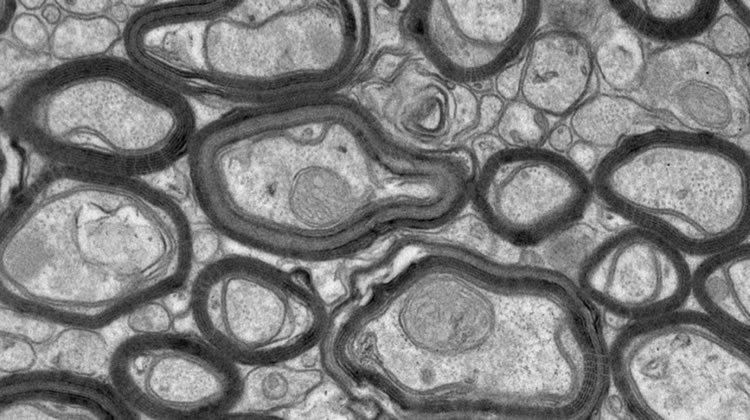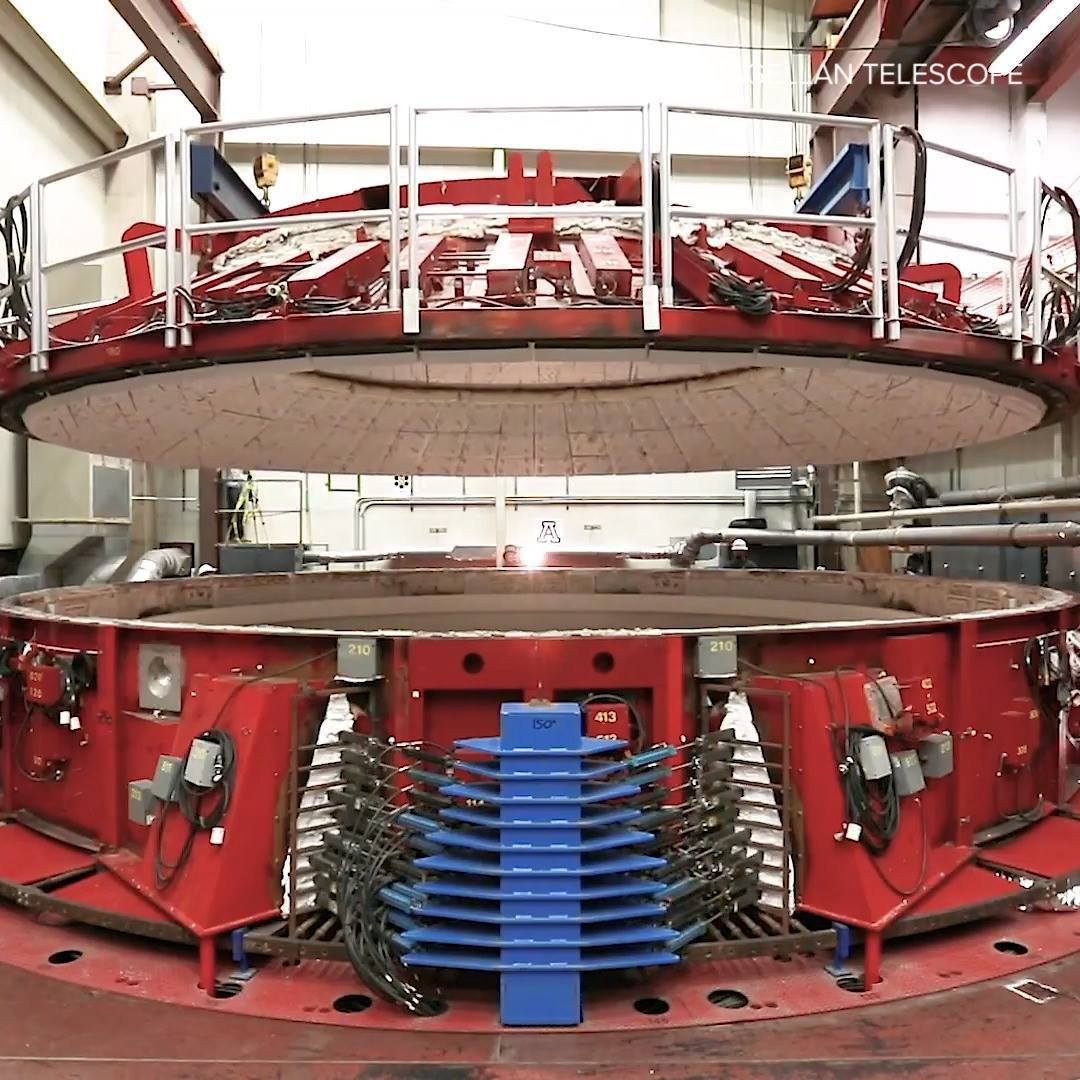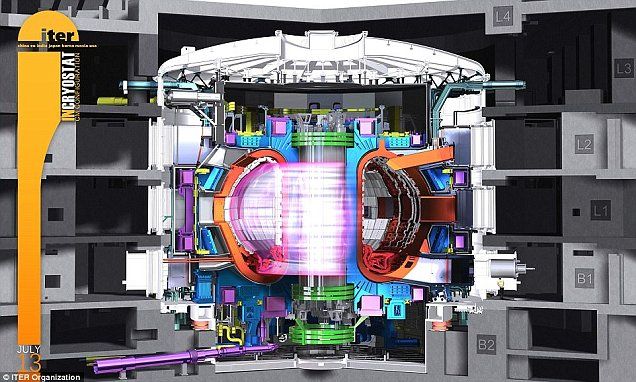Please join the conversation! https://www.youtube.com/watch?v=2LRwvU6gEbA …
Researchers have found a way to rebuild damaged nerve coverings that cause Multiple Sclerosis.
Researchers successfully used a synthetic compound to stimulate a receptor pathway to promote remyelination in the brain. The technique may have significant beneficial implications for treating multiple sclerosis, researchers say.
NASA is partnering with U.S. companies and small businesses to develop technologies that have the potential to significantly benefit the economy and future NASA missions.
Recent announcements of selections for the agency’s Tipping Point solicitation and Phase II of NASA’s competitive Small Business Technology Transfer (STTR) program include several proposals with NASA’s Langley Research Center in Hampton, Virginia.
NASA selected 10 Tipping Point proposals totaling approximately $44 million and Langley is a partner on one $3 million proposal. The agency also selected 20 research and technology proposals — valued at $15 million — from 19 American small businesses for STTR Phase II and Langley will manage three of the selected proposals totaling $2.25 million.
CELLINK proudly presents the LAMININ-SERIES in collaboration with BIOLAMINA
Laminins are proteins composed of three subunits referred to as a α-chain, β-chain and γ-chain. They are a major component of the basal lamina that lines the external surface of cell membranes. This protein is characterized by its cross-like structure that serves as a structural foundation for many tissues. Laminins play an important role in cell differentiation, migration, adhesion and also involved in supporting healthy tissue. Several laminins have been identified, which all have been related to different tissues and organs in the human body.
Our CELLINK LAMININ SERIES consists of five tissue-specific bioinks that have been developed for improving maintenance and survival of tissue. The bioinks contain laminins to mimic the basal lamina and the natural tissue environment. These bioinks retain the excellent printability and ease of cross-linking found with the universal CELLINK® bioink.
Seed oil components of an ornamental flower could provide a direct pathway for designing a new class of environmentally friendly lubricants. Researchers at the School of Science at IUPUI identified the compound in the seed oil that is produced in a manner unlike any other fatty acid. The study was published today online in the journal Nature Plants.
The Orychophragmus violaceus plant is a purple flower native to China; it’s commonly referred to as the February orchid. While collaborating on the O. violaceus plant’s biology and genetic makeup, researchers at Huazhong Agricultural University in Wuhan, China, and the University of Nebraska-Lincoln encountered a bit of a mystery: All plant seeds contain oils as energy reserves for later growth, but researchers noticed the February orchid seed oils were unusual.
They called upon IUPUI bioorganic chemist Robert Minto, who specializes in identifying natural products and unknown compounds.
What could possibly go wrong? Does anyone remember Fukushima?
Floating nuclear power plants offer several economic advantages.
A large percentage of the cost of a nuclear power plant is the construction and installation of the plant itself. This cost can vary and increase if the site has challenging weather and other conditions. Also, cold and harsh environments may not have a highly trained local workforce to build each plant.
When it comes to fundamental physics, things can get spooky. At least that’s what Albert Einstein said when describing the phenomenon of quantum entanglement—the linkage of particles in such a way that measurements performed on one particle seem to affect the other, even when separated by great distances. “Spooky action at a distance” is how Einstein described what he couldn’t explain.
While quantum mechanics includes many mysterious phenomena like entanglement, it remains the best fundamental physical theory describing how matter and light behave at the smallest scales. Quantum theory has survived numerous experimental tests in the past century while enabling many advanced technologies: modern computers, digital cameras and the displays of TVs, laptops and smartphones. Quantum entanglement itself is also the key to several next-generation technologies in computing, encryption and telecommunications. Yet, there is no clear consensus on how to interpret what quantum theory says about the true nature of reality at the subatomic level, or to definitively explain how entanglement actually works.
According to Andrew Friedman, a research scientist at the University of California San Diego Center for Astrophysics and Space Sciences (CASS), “the race is on” around the globe to identify and experimentally close potential loopholes that could still allow alternative theories, distinct from quantum theory, to explain perplexing phenomena like quantum entanglement. Such loopholes could potentially allow future quantum encryption schemes to be hacked. So, Friedman and his fellow researchers conducted a “Cosmic Bell” test with polarization-entangled photons designed to further close the “freedom-of-choice” or “free will” loophole in tests of Bell’s inequality, a famous theoretical result derived by physicist John S. Bell in the 1960s. Published in the Aug. 20 issue of Physical Review Letters, their findings are consistent with quantum theory and push back to at least 7.
The world’s largest telescope
Posted in space
An AI is set to try and work out how a potentially limitless supply of energy can be used on Earth.
It could finally solve the mysteries of fusion power, letting researchers capture and control the process that powers the sun and stars.
Researchers at the U.S. Department of Energy’s (DOE) Princeton Plasma Physics Laboratory (PPPL) and Princeton University hope to harness a massive new supercomputer to work out how the doughnut-shaped devices, known as tokamaks, can be used.
Researchers make significant progress toward proving a critical mathematical test of the theory of general relativity.
- By Kevin Hartnett, Quanta Magazine on August 27, 2018









